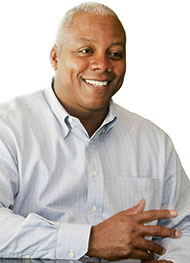 7 Mistakes Job Applicants Should Avoid
7 Mistakes Job Applicants Should Avoid

Marcia Heroux Pounds
Sun Sentinel Columnist
February 9, 2011
Out of work since March 2010, Mark Roper wouldn’t stop knocking on the door of Wholesale Carrier Services, a telecommunications firm in Coral Springs. At least, that’s how his CEO Chris Barton remembers it. “It was non-stop banging on our receptionist’s counter – ‘I’m qualified for this job,’ ” Barton says.
Roper, 49, says he didn’t literally bang on the counter, but he was persistent. After passing an initial screening and interviewing, Roper followed up with thank-you notes and calls until he was hired. “I let them know my qualifications and I backed them up,” he says. “I didn’t try to give the impression that I knew everything.”
Whether a job candidate represents himself honestly and professionally is important, says Barton and other South Florida hiring managers. Barton hired Roper in November 2010 and says he has proven to be an asset to the company’s trouble-shooting help team. “He’s probably the most positive employee we’ve hired,” he says.
Why does an employer hire one job applicant, but not another? Here are seven big mistakes that South Florida hiring managers say keep potentially good people from getting hired:
Not taking the screener seriously: Seems simple, but many job applicants fail the first screening because they don’t think they have to make an impression at that point, says Gerry Czarnecki, once a senior human resources manager at IBM, and now CEO of O2 Media in Pompano Beach.
“You don’t impress them by blowing so much smoke at them — telling stories about yourself that simply don’t matter,” he says.
Also don’t send too much information to an employer, Czarnecki says. He wants a short, crisp resume that, for example, shows a job candidate’s achievements,
Posting party photos on Facebook. Barton won’t hire a candidate who displays extreme party photos on Facebook. Before interviewing someone, his company looks at the applicant’s web pages on LinkedIn, Facebook, MySpace, Google, Yahoo and other social and professional networking sites. “Many candidates have been eliminated for failing to meet our standards of conduct or professionalism,” Barton says.
So he recommends job applicants “sanitize” their Internet profiles before seeking work. “Put your name in Google. Everything you’re going to type in, I’m going to type in. Then do something about it if there’s something you don’t like,” Barton says.
Ignoring technology advances. At the same time, Barton won’t hire someone who isn’t a “digital citizen.” In interviews, he often asks applicants how many people follow them on LinkedIn.com, the professional networking site, and other social media. Barton also asks: “What ranking do you have in Google if I search your name? Do you care? Why or why not? Do you have a professional blog?”
Barton says what he wants to know is: “What web-based following does hiring you bring to our company?”
Trying to control the interview. Listen more than you talk, until the interviewer asks if you have any questions, Czarnecki says. “You have to answer questions candidly, carefully and succinctly. If all you do is ramble on, then you will probably not get an invite to the next stage. An interviewer doesn’t have time to waste. They’re asking you questions for a reason.”
Seeking a job other than the one that’s open. Czarnecki immediately dismisses candidates who start asking about when they can get promoted. So don’t ask, “What is my career path?”
“That is a ridiculous question. They should be interviewing for the job on the market,” he says.
Then when it’s your opportunity, ask good questions, such as, “Can you help me understand how the business model works? Help me understand the position I would be doing in relation to the rest of the organization. What are the expectations? How will I know if I’m qualified to be in this position?”
Failing to show an aptitude to learn. Barton says organizational skills are critical to everything his firm does so he often asks an applicant to show him his Palm Pilot or other organizer. “If you don’t have one, strike one.”
“They should be proud to say, ‘This is how I organize my day.” Barton often says to a job candidate, “Show me your Outlook calendar. How many appointments have you booked?”
Organization is important to any company’s productivity, Barton says. “They better be more efficient or we’re not going to be efficient as a company.”
He’s not as concerned if an applicant doesn’t have the latest technology. What he wants to see is an aptitude to adapt to new technologies. “If they’re not comfortable, I’m not going to hire them,” Barton says.
Lying to the employer. Simply don’t apply for a job if you’re not qualified, Czarnecki. He often finds fraudulent educational information, such as college degrees, on resumes. And don’t claim skills you don’t have. Interviewers are trained to smell a phony, he says. “You’re doing serious damage to your credibility,” Czarnecki says.
Job seekers who lie “don’t have a prayer of getting hired. They’re better off saying they’re not educated and brilliant,” he says.
 4.7 Job Seekers For Every Available Job
4.7 Job Seekers For Every Available Job
February 8, 2011, Wall Street Journal
Layoffs Down, but Hiring Still Slow
By JUSTIN LAHART
The U.S. job market has returned to pre-recession levels in at least one category: layoffs.
Employers let go 1.84 million workers in December, the Labor Department said Tuesday, down from 2.05 million a year earlier and a bit lower than the levels that prevailed prior to the start of the recession in late 2007.
But hiring remains slow: There were 4.18 million people hired in December, up from 4 million a year earlier—but far below 2007’s average of 5.27 million a month. The Labor Department also said there were 3.1 million job openings at the end of December. With 14.5 million people unemployed and looking for work, that meant that there were 4.7 job seekers for every available job, three times the norm in 2007.
“The weakness is definitely in the hiring side,” said Credit Suisse economist Henry Mo.
Mr. Mo also noted that the number of job openings in the past year increased more rapidly than the number of new hires. That could be a sign that companies are having a hard time finding qualified workers. But the more likely reason, he said, was that with a large pool of unemployed workers to draw from, “employees have the luxury to take time to fill the jobs they’ve advertised.”
Separately, confidence among U.S. small-business leaders gained a bit last month, amid continued concern about the business outlook. The National Federation for Independent Business, in a report Tuesday, said its January index moved to 94.1, a 1.5-point rise from December, led higher by positive earnings trends and expectations of higher sales.
>>>>>>>>>>>>>>>>>>>>>>>>>>>>>>>>>>>>>>>>>>>>>>>>>>>>>>>>>>>>>>>>>>>>>>>>>>>>>>

You can differentiate yourself from your competition with career and/or interviewing coaching from a professional recruiter. See our Coaching page under the Services tab.
 Mamas Don’t Let Your Children Grow Up to Be Entrepreneurs
Mamas Don’t Let Your Children Grow Up to Be Entrepreneurs

Americans love entrepreneurs — but don’t want their children to be them By Brooke Howell on January 31, 2011
Have you noticed how much Americans love wildly successful entrepreneurs? Just look at the blogs on leadership and business strategy, and you’re sure to find something about the genius of Steve Jobs or Richard Branson. ” The Social Network,” the blockbuster film about Facebook founder Mark Zuckerberg, was just announced as a best picture nominee for this year’s Academy Awards.
As much as we revere these big-name entrepreneurs for their huge successes, Americans don’t look highly on entrepreneurship as a career aspiration, according to the findings of the latest figures from the Global Entrepreneurship Monitor. It turns out American parents want their children to pursue success through more certain avenues, such as being a doctor or going into business with a well-established corporation — not by striking out on their own.
But it’s the people who do strike out on their own who will create new jobs and revive the U.S. economy — as well as those around the world — said the researchers who presented the Global Entrepreneurship Monitor 2010 Report last week. The report, in its 12th year, includes data gathered from 59 countries, including the U.S.
In those countries, there are 250 million people between the ages of 18 and 64 who are working at starting or running new businesses and more than a quarter of them plan to hire at least five employees in the next five years. More than 10% plan to hire 20 or more people to work in newly created jobs.
Those are impressive numbers, but figures GEM would like to see increase. Moreover, they say government action and support is necessary to encourage entrepreneurial activity. “Governments must encourage those with great ideas to pursue the opportunities they perceive. In so doing, entrepreneurs and governments build a foundation for future jobs,” said Ignacio de la Vega, GEM oversight board member.
 5 Typos That Broke the Bank
5 Typos That Broke the Bank
Caleb Johnson (RSS feed) — Oct 7th 2009
Whether caused by rushed jobs, or just plain sloppiness, typos are an everyday reality. Most of the time, in this lickety-split Internet world of ours, it’s not a big deal. Sometimes, however, a mistyped letter or two can end up costing the misguided typist a lot of money (and time). Here are five recent textual slip-ups that were particularly expensive.
Missing ‘L’ Costs County Money
When an Ottawa County clerk noticed a misspelled word on an election ballot in November 2006, he probably quietly chuckled, until he saw the cost. Leaving out the ‘L’ in ‘public’ might have been funny — if it hadn’t ended up costing $40,000 to reprint the ballots.
GPS Typo Makes Swedish Tourists Spend Too Much on Gas
When spelling a word, it’s easy to mix up the letters, but most folks notice their error fairly quickly. This past summer, on the other hand, two Swedish tourists who were headed for Capri, Italy made the mistake of typing ‘Carpi’ into a GPS, and ended up 400 miles away from their destination. With gas prices approaching $6 to $7 a gallon in Europe at the time, it turned out to be an expensive error.
Japanese Trader Costs Bank $340 million
Even if it was close to quitting time, there’s still no explanation for why, or how, a Japanese trader sold 610,000 shares of J-Com Co. for 1 yen instead of selling, as he’d intended, 1 share for 610,000 yen. In total, he cost his company $340 million back in September of 2006.
Typos Sends Woman to Puerto Rico Instead of Costa Rica
In February, a travel agent mistyped an airport code and sent his customer to Puerto Rico instead of Costa Rica. That one letter sent the woman 1,500 miles from her intended destination, costing her a few nights of her vacation and around $1,270, too.
Man Undersells Antique Bottle of Ale on eBay Due to Typo
In September 2007, a man listed an antique bottle of ale on eBay and misspelled its name. Instead of typing ‘Allsopp’s Arctic Ale,’ he typed ‘Allsop’s,’ royally confusing collectors. One lucky (and smart) bidder won the 150-year-old bottle of booze for $304 and sold it right away for $503,300. That one forgotten letter cost the original seller quite a chunk of change.
 Staying Occupied During Your Search
Staying Occupied During Your Search
 WALL STREET JOURNAL: September 25, 2009
WALL STREET JOURNAL: September 25, 2009
By: Christopher Janc
Christopher Janc was most recently a senior vice president at Madison Capital Funding LLC, a leveraged debt provider to middle market private equity firms. He spent seven years at the company and was laid off in January 2009. Mr. Janc, 41, spent the previous seven years with three other middle market financial services firms. He earned an M.B.A. from the University of Chicago Booth School of Business in 2000. He lives with his wife and two kids in Elmhurst, Ill. a suburb of Chicago.
I often get asked what I am doing to keep busy during my time off. Do I get bored? How do I fill the hours? I have found that, with just a little effort, it is very easy to fill the hours while also preserving and building upon the skills I have developed over the years. Not going in to the office every day can result in a rapid atrophy of some basic business skills. However, it also represents a great opportunity to work on other skills that were not necessarily part of my old job, but vital nonetheless.
My first area of development has been networking. Although my prior position involved new business development, my networking skills had fallen off considerably from the time I first entered the workforce. Chalk this up to years of crunching numbers and taking on jobs and responsibilities that were much more analytic in nature. Once I got back into a role requiring much more client contact it took me quite some time to get comfortable constantly being in front of people in a sales capacity. My time off has significantly improved those skills as constantly meeting new people has taught me what does and does not work for me.
In terms of keeping my analytical skills sharp, I have started working on the CFA program. I find the challenge of learning new material and refreshing the knowledge from my M.B.A. program is enjoyable and fulfilling. The great thing about these programs is that there are so many out there for whatever your chosen field that finding a relevant one is easy. The other great thing is that I will have a new credential to show for it as long as I stick it out and complete the program.
One of the easiest areas to work on has also been the most rewarding. The time away from the office has led me to step up and volunteer. Activities related to my kids and their school, such as Cub Scouting, school boards, and church committees has been eye opening, rewarding and excellent way to keep my organizational and project management skills working. It also helps with decision-making, which requires practice, just like any other business skill.
I am sure that there will be plenty who respond that I should be focusing every waking hour on my job search — I would agree if these were normal economic times. However, I have also seen what that can do to some people. Banging my head against a brick wall for 60 hours a week instead of 30 will only do more damage to my head and will have relatively little effect on the wall. Additionally, some of the activities that I have undertaken have led to interviews as I get the opportunity to demonstrate some of my professional skills to others. We have all heard that balance is a necessity to being happy in life. This is especially true during the stress of a prolonged period of unemployment. But there is no reason that we can’t also stay sharp and practice our skills while helping others as well as ourselves.
 Tax Benefits for Job Seekers
Tax Benefits for Job Seekers

IRS Summertime Tax Tip 2009-01
Many taxpayers spend time during the summer months polishing their résumé and attending career fairs. If you are searching for a job this summer, you may be able to deduct some of your expenses on your tax return.
Here are the top six things the IRS wants you to know about deducting costs related to your job search.
- In order to deduct job search costs, the expenses must be spent on a job search in your current occupation. You may not deduct expenses incurred while looking for a job in a new occupation.
- You can deduct employment and outplacement agency fees you pay while looking for a job in your present occupation. If your employer pays you back in a later year for employment agency fees, you must include the amount you receive in your gross income up to the amount of your tax benefit in the earlier year.
- You can deduct amounts you spend for preparing and mailing copies of a résumé to prospective employers as long as you are looking for a new job in your present occupation.
- If you travel to an area to look for a new job in your present occupation, you may be able to deduct travel expenses to and from the area. You can only deduct the travel expenses if the trip is primarily to look for a new job. The amount of time you spend on personal activity compared to the amount of time you spend looking for work is important in determining whether the trip is primarily personal or is primarily to look for a new job.
- You cannot deduct job search expenses if there was a substantial break between the end of your last job and the time you begin looking for a new one.
- You cannot deduct job search expenses if you are looking for a job for the first time.
For more information about job search expenses, see IRS Publication 529, Miscellaneous Deductions. This publication is available on the IRS Web site, IRS.gov or by calling 800-TAX-FORM (800-829-3676).
 The Lesson of the 38 Candy Bars
The Lesson of the 38 Candy Bars
Published: New York Times, August 8, 2009
This interview with Gary E. McCullough, president and chief executive of the Career Education Corporation, was conducted and condensed by Adam Bryant.
Q. What’s the most important leadership lesson you’ve learned?
A. The biggest one I learned, and I learned it early on in my tenure in the Army, is the importance of small gestures. As you become more senior, those small gestures and little things become sometimes more important than the grand ones. Little things like saying “please” and “thank you” — just the basic respect that people are due, or sending personal notes. I spend a lot of time sending personal notes.
I’ll never forget one of the interactions we had with my commanding general of the division in which I was a platoon leader. We were at Fort Bragg, N.C. We had miserable weather. It was February and not as warm as you would think it would be in North Carolina. It had been raining for about a week, and the commanding general came around to review some of the platoons in the field. He went to one of my vehicle drivers and he asked him what he thought of the exercise we were on. To which the young private said, “Sir, it stinks.” I saw my short career flash before my eyes at that point.
He asked why, and the private said: “There are people who think this is great weather for doing infantry operations. I personally think 75 and partly cloudy is better.”
And so the commanding general said, “What can I do to make it better for you?” And the private said, “Sir, I sure could use a Snickers bar.” So a couple days later we were still moving through some really lousy weather, and a box showed up for the private. And that box was filled with 38 Snickers bars, which is the number of people in my platoon. And there was a handwritten note from the commanding general of our division that said, “I can’t do anything about the weather, but I hope this makes your day a bit brighter, and please share these with your buddies.”
And on that day, at that time, we would’ve followed that general anywhere. It was a very small thing, and he didn’t need to do it, but it impressed upon me that small gestures are hugely important.
Q. What’s the best career advice someone ever gave you?
A. I believed early in my career that if I just worked hard, put my head down and did my job, everyone would notice and good things would happen. And in fact, that’s not true, necessarily. You can do your job and you can toil along in anonymity without anybody noticing for a real long time.
I was among the last people in my class who came into Procter & Gamble to be promoted to brand manager, and I would attribute part of that to the fact that I just wasn’t very savvy politically. A mentor taught me that no one could micromanage my own career better than me. And so I won’t say that I became more demanding, but I certainly began to have more of a plan around things that I felt I needed to do to grow, and I was more overt stating what I wanted or what I needed.
I think it’s an implied contract. You know, when you work at a company, you owe them a good day’s work. The company owes you a fair salary and growth opportunities. I was giving my best effort but I didn’t think I was getting, in some cases, all the return. So I started asking for it, not in a rude way, but in a way that it implied a quid pro quo, so to speak.
Q. Talk about how you’ve handled failure.
A. There was a point in time in my career where I was told point blank that I wasn’t going to be promoted, that I didn’t have the skills to go on to the next level. And when you’re faced with a situation like that, there’s two ways you can respond to it: You can accept it and you can move on, which I think would’ve been the easy thing to do, or you could seek to find out why people had that belief and convince them that you can do the work. I chose the latter.
I think when you’re faced with that, everybody has to dig in to look at themselves and say, “Am I here to make something happen, or am I going to believe this to be the case?” There are some things that are within your control and that you’ve got to drive to make happen. And there are some things that are outside your control that you can’t.
When they said I wouldn’t be promoted, I basically said, “Tell me what I need to do.” And I focused like a laser beam on those things and I delivered those.
Q. What has surprised you most about the top job?
A. One is the breadth of topics or issues that you’re confronted with on a daily basis, and you have to be able to go from one thing to another to another, and sometimes it feels like they’re completely unrelated.
In some cases it’s a snap decision. It’s got to be, “This is how we’re going to proceed, move forward” versus taking time to really contemplate the question. So if you’re not comfortable with dealing in gray areas or you’re not comfortable with deciding with 75 or 80 percent of the data you would want to have, then this is not a job that people should aspire to.
I think the other piece is just the demands of the various constituents. You know, you have employee demands, I’ve got a board of directors that has demands. There are investors, there are analysts and shareholders and so on and so forth, and they all require time and attention. So marshaling enough time so that you don’t feel like you’re giving everybody short shrift is really tough to do.
The other piece is the fishbowl nature of the job. It’s relentless to some degree, in that respect.
Q. How do you make sure you’ve got the energy to do all that?
A. I think part of it’s just genes and disposition. I’ve always been an early-morning riser. I like to get up early. I like to get a workout in because that gets the blood pumping to face the day. So a couple times a week, I’m up at 4:45 or 5 at the latest.
Q. How do you hire?
A. When I’m hiring, particularly at the senior levels, I’m looking for a couple of things. One is demonstrated leadership — has somebody shown that they have mastered the work, that they can lead people and lead organizations? I look for intelligence — business intelligence — and I’m not talking book intelligence. I’m rarely swayed by people who were 4.0 students at the best colleges and universities. I’m just talking about basic smarts.
You do recruit for raw intelligence because if you don’t have it, you don’t have it. You either do or you don’t. But I’m also looking for some street saviness. I’m looking for the ability to work with other people.
Teamwork’s important to me. I grew up playing on teams. I’m not a fan of people who are “lone wolves” at the tops of organizations, because they don’t do a good job of working with me and with the organization in many cases.
So I ask them to tell me about a time when they were in, say, a leadership situation where something simply would not have happened had they not been there, and what they did to influence the action. Questions like that tend to be pretty open-ended.
Q. It’s hard to test for those intangibles up front.
A. Yes it is, which is why I want to spend time with people. At the levels I’m hiring for, I want to have a meal with you. I want to meet your spouse. They should want to do the same thing with me and with my spouse, because you get a sense for who people are when you get them out of the business environment.
I’ll tell you another quick story. There was a woman named Rosemary who long ago retired from Procter & Gamble. Rosemary was a cafeteria worker, and at the time at P. & G., we actually had a cart that would come around at 7, 7:30 in the morning. They would ring a bell and you’d go get a cup of coffee and a doughnut or a bagel or something to start off your day.
And Rosemary had an uncanny ability to discern who was going to make it and who wasn’t going to make it. And I remember, when I was probably almost a year into the organization, she told me I was going to be O.K. But she also told me some of my classmates who were with the company weren’t going to make it. And she was more accurate than the H.R. organization was.
When I talked to her, I said, “How’d you know?” She could tell just by the way they treated people. In her mind, everybody was going to drop the ball at some point, and then she said: “You know you’re going to drop the ball at some point, and I see that you’re good with people and people like you and you treat them right. They’re going to pick up the ball for you, and they’re going to run and they’re going to score a touchdown for you. But if they don’t like you, they’re going to let that ball lie there and you’re going to get in trouble.”
Again, I think it’s those intangible things. I had taken the time to get to know Rosemary and know that her husband’s name was Floyd and know the thing that they did in their off-time was bowling. So, it is all those little intangible things that you see, not when you’re sitting around a table in a conference room, but what you see in other ways.
Q. What’s your approach to time management?
A. When people ask me for time, they generally don’t need the time that they ask for. So my assistant asks people, “How much time do you need?” and, “What are the outcomes?” If they say an hour, we cut it in half. If they say 30 minutes, we cut it to 15, because it forces people to be clearer and more concise. By doing that, I’m able to cram a number of things into the day and move people in and out more effectively and more efficiently.
Sometimes there are things that people come in to discuss because they want face time, or because they’re unsure, or they want me to make a decision so they can say that I made the decision and hide behind that. And so those things don’t work very well.
Q. What’s your two-minute commencement speech?
A. I would tell people that the race ultimately doesn’t go to the fast. It goes to the strong. It goes to the resilient and it goes to the people who are well prepared. I have my own kids, and I tell them that when I walk into a room of more than five or seven people, I know that I am not the smartest guy in the room and I’m very, very comfortable with that fact. There are people who are off-the-charts smart, and that’s great. That’s good for them. I like to surround myself with really smart people, as I said before.
I will outwork, and have over the course of my career, about anybody. If you’re clear about what you want, if you’re strong, if you’re resilient, if you’re well prepared and you’re willing to work — I mean really work — then good things can happen. I’m a guy who never planned to be in an office like this, and that was not my goal coming out of business school, believe it or not. And so, it surprises me that I’m in this role and in this job. I think when you’re too focused on the top job, you can get derailed somewhere along the way.
 6 Myths About Job-Hunting During a Recession
6 Myths About Job-Hunting During a Recession

By Cherie Berkley for PayScale.com
Just when you thought the job market couldn’t get worse, there is more news about company pink slips, hiring freezes, and benefit slashes. If you are one of the thousands tasked with getting a new job in this poor economy, all is not lost. Hopefully, you can move more quickly from the unemployment line to a job offer once you get past these six common myths about job-hunting during a recession.
Myth No. 1: No one is hiring during a recession.
Layoffs are coming in every direction, but some employers – even those laying off workers — are still hiring. Companies often eliminate full-time employees with budget-busting benefits only to replace them with contractors or consultants to save costs. Additionally, “green” jobs and health care jobs are among those still actively populating want ads. And, the pay is respectable. For instance, Payscale.com shows the median annual salary of an environmental engineer with 3-5 years experience is $60,672.
Myth No. 2: The Internet is the best place for finding jobs in a recession.
The Internet is an efficient way to survey jobs among many companies, but personal interaction is still the smartest way to find jobs during a recession. Truth is, employers are bombarded with thousands of resumes from the Internet — especially during a recession. Therefore, the chance that your new boss will choose your resume out of a pile of prospects is slimmer than ever. Instead, focus on finding a position, apply for it, and then do some research and connect personally with a hiring manager in the company to follow-up. Social networking sites, such as LinkedIn, also offer a great way to connect with targeted employees on your company dream list. These connections are golden because they can give you insider info about unpublished positions and help you sail past HR “blockers.” Personal recommendations go much farther in landing a job during a recession than random resumes.
Myth No. 3: Searching companies in hiring freezes is a waste of time.
Like many situations in life, hiring freezes are not absolute. Savvy networking, the right face-to-face meeting, and the ability to sell skills critical to the prospective company can be the perfect formula for lighting a fire under an employer in a hiring freeze. Behind closed doors, hiring managers are told to make exceptions for spectacular candidates that can show them the money, especially in a recession when every dollar counts.
Myth No. 4: Expect a salary cut during a recession.
In hard times, companies value astute problem solvers more than ever. While employers may trim the fat elsewhere, there is always room in the budget for top-tier talent. However, in a competitive job market, there is a bigger burden to prove you are worth a higher salary, John Challenger, CEO of Challenger, Gray & Christmas, says. Ultimately, companies want their talent investments to pay off — and stick around. “If an employer goes to the expense, time, and effort to find a qualified candidate, it wants the person to stay,” Challenger adds. The last thing an employer wants is for a prized candidate to temporarily accept a lower salary than her previous salary and say “hasta la vista” once the job market recovers.
Myth No. 5: Companies are not interested in hiring people over age 55.
There are several reasons Challenger, Gray & Christmas disputes the adage that older employees are unemployable. In a struggling economy, employers value seasoned workers’ shorter learning curves (aka: less money invested in employee training) and their ability to do the work of several younger, less-seasoned workers. Separately, like a fine wine, experienced employees who are surgeons, accountants, attorneys, engineers, and IT professionals get better with time. Clients gravitate to more experienced employees in these professions. This adds up to more cha-ching for employers.
Myth No. 6: Experience and advanced degrees guarantee a job during a recession.
While experience and education have their plusses, they aren’t guarantees to landing a job during a recession. In a deep job recession, experienced and degreed people come a dime a dozen. “It is very important to sell your world experience, your concrete accomplishments, and expertise; things that make an impact on the company rather than just your knowledge,” Challenger says. Research what skills the employer values most in order to tailor your sales pitch accordingly, Challenger adds. And, because the market is so tight, though you are experienced, someone with more experience is likely applying for the same job. Take time to create your brand image and sell, sell, sell!
Sources: Challenger, J. Interview, Feb., 2009. Challenger, J. “The Job Hunt, Don’t Be Sidetracked by Myths About Today’s Job Market.” Challenger, Gray, & Christmas, Inc.
 Welcome to Our New Website!
Welcome to Our New Website!
 Welcome to our new website. We hope that you will find the content informative and helpful. ….and maybe even provide a few laughs. We all deserve a break from the “doom & gloom” news of the day.
Welcome to our new website. We hope that you will find the content informative and helpful. ….and maybe even provide a few laughs. We all deserve a break from the “doom & gloom” news of the day.
Eager to please, we have listened to what our candidates and clients said they wanted us to provide. We are now offering new services such as FREE job seeker tips that work, individual and group Career Coaching, cost effective Virtual Out-Placement offered on an Individual and Group basis and our new career enhancing publication, Don’t Interview….Audition
Be sure to check here often for updates and articles of interest.




